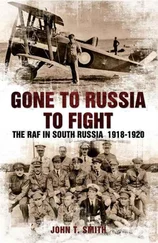96. The sole author
“But you’re making me sound like a victim, my point is I had a very good time, these were just small things, I don’t really know why we’re even talking about them. All your questions are leading. Rare Negroid Italian has happy childhood, learns Latin, the end. Then nothing very interesting happens between 1987 and tonight.” He kissed her extravagantly. Perhaps she would always look after him, help him become a real person. After all, she was strong! Even relative weakness in Caldwell translated to impressive strength in the world. The world asked so much less of a person, and was of simpler construction.
97. Nota bene
Natalie did not stop to wonder whether Frank’s boarding school might have done the same job for him.
98. Sixth-month anniversary
“Frank, I’m going downstairs, I can’t work with the telly on. Can I take Smith and Hogan ?”
“Yeah, and burn it.”
“How are you going to pass this exam?”
“Ingenuity.”
“What is that?”
“MTV Base. Music videos are the only joyful modern art form. Look at that joy.”
He reached forward on the bed and put his finger over a dancing B-girl in a white shell suit. “I was in Puglia when he died. Nobody understood. Some fat gangster? Who cares ? This was the attitude. It’s not even music as far as they’re concerned.”
Everything he said sounded wonderful. He only lacked what the Italians call forza , which Natalie Blake herself would provide (see above).
99. Frank seeks Leah
The sun pierced through the blinds in long shadows. Natalie Blake stood in the doorway of the lounge, nervous, holding a tumbler of vodka, ready to smooth over any rupture. Leah and Frank sat side by side on his grandmother’s Chesterfield. Natalie could see how Leah had grown into herself. No longer gangly: tall. No longer ginger—“auburn.” The experimental period had ended. Denim skirt, hoodie, furry boots, a thick gold hoop in each ear. Back to her roots. Natalie Blake watched her boyfriend Frank De Angelis cut out crooked white lines on a glass-topped table, while her good friend Leah Hanwell rolled a twenty-pound note into a thin tube. She saw how he listened intently as Leah spoke of a man called, in her pronunciation, Me-shell. They’d just met in Ibiza. Frank was taking the task seriously. He understood that there could be no loving Natalie Blake without loving Leah Hanwell first.
“Here’s something that interests me: you girls — you like your Eurotrash brothers. But isn’t it true? It’s a strange coincidence. There aren’t that many of us. Is it a competition?”
“Look, mate: you’re Eurotrash. He’s from Guadeloupe! His dad was in the underground resistance movement thing — basically, he went on the run, the whole family had to. His dad’s a school janitor in Marseilles now. His mum’s Algerian. She can’t read or write.”
Frank dipped his head and made his mouth into a comic moue.
“Points to Hanwell. He certainly sounds like the salt of the earth. Child-of-a-freedom-fighter. I am forced to cede the moral high ground. I am decidedly not the salt of the earth.”
Leah laughed: “You’re the cocaine on the mirror. The badly cut cocaine.”
100. Natalie seeks Elena
A Mayfair lunch. A beautiful woman slips an oyster down her throat. Her phone is so slim and light it sits easily in the silk pocket of her blouse. “And he is working hard?” she asks. Elena De Angelis tapped a thin cigarette on the tablecloth and gave Natalie Blake a sideways look of fierce cunning. Before Natalie could even stutter an answer, Elena laughed. “Don’t worry — I don’t ask you to lie. It’s not going to be the law for ’Cesco, of course it is not. But I hoped it would be a useful thing generally, for his character. It was like this for his uncle. Well. He met you. You are the first real woman he has ever brought to meet me. This is something. Tell me, is it true you have to have dinner a certain number of times in the year or you cannot be a barrister?” Natalie watched Elena tap ash into her dinner plate. She urgently wanted to know how this woman loved and lost a Trinidadian train guard. “Yes,” she said, “twelve times. In the great hall. Used to be thirty-six.” Elena blew two jets of smoke through her nostrils: “What a curious country this is!” A waiter came over and the bill was settled somehow without any ugly groping after purses and money. “’Cesco, please call your cousin. I said you would ring two weeks ago, and they can’t hold a position forever. It’s embarrassing.”
101. Onwards, upward
Frank flunked the bar spectacularly, turning up forty-five minutes late, leaving ten minutes early. Afterward the first thing he did was call his mother. Natalie saw how this conversation cheered him. Elena was the kind of woman to prefer a spectacular disaster to a conventional failure.
Leah Hanwell found a bleak flat south of the river, in New Cross, and Natalie Blake, out of respect for an old friendship, became her flatmate. She read briefs on the long triangulated tube rides: New Cross, Lincoln’s Inn, Marylebone. She slipped into Frank’s bed. Slipped out. Slipped in. “What time is it?” “Eleven fifteen.” “I’ve gotta chip!” She tried to force herself to get up and onto a night bus, heading south. “Your principles spend more time in that dump than you do,” he observed. She sank back into the pillows.
Perceptive in sudden, hard-to-predict bursts.
Goofy and always affectionate. He called a lot.
Going through the ticket barrier, the phone he’d bought her rang:
“Natalie Blake you’re literally the only person in the world I can stand.”
That was the year people began saying “literally.”
Frank was at his desk at Durham and Macaulay Investments, betting on the future price of things he was quite unable to describe to her. More symbols, she presumed, though of a kind she coudn’t decode.
102. Save yourself
To explain herself to herself, Natalie Blake employed a conventional image. Broad river. Turbulent water. Stepping-stones. Caldwell, exams, college, the bar — pupillage. This last gap was almost too wide to jump. There were no scholarships, and no way of earning any real money through the first half of the pupillage year. It had to be another loan, combined with the building society savings, untouched since childhood. This building society, a local concern, happened also to operate at the level of conventional images.
103. Capitalist pigs
He was called Peter: he had a coin-shaped slot in his back. Marcia Blake had kept the little red pocket book, and dealt with the cashiers. As certain key sums were achieved (twenty-five pounds, fifty pounds, a hundred), the child received first Peter, and then various members of the building society’s branded pig family. In the Blake home these pigs were considered ornaments, and stood all together on a shelf in the lounge. Sometimes Marcia would offer a glimpse of the “credit” column with the extraordinary (untouchable) sum of 71 pounds or something like that. Natalie never touched it, and now, twenty years later, it had finally amounted to something. Ah, memories! And perhaps she even remembered handling the old one-pound paper notes? Hard to say: nostalgia is such a distorting force.
“You in this line?”
Natalie looked down at the feisty old lady at her elbow, clutching her little red book. She raised her own red book vaguely: “I think so.”
But the line was an amorphous crowd of noisy NW people holding pocket books and shouting and pushing. Someone said: “We need system up in this queue, man! Always chaos in here!” Someone else: “These people don’t know what is British queue.”
Читать дальше











